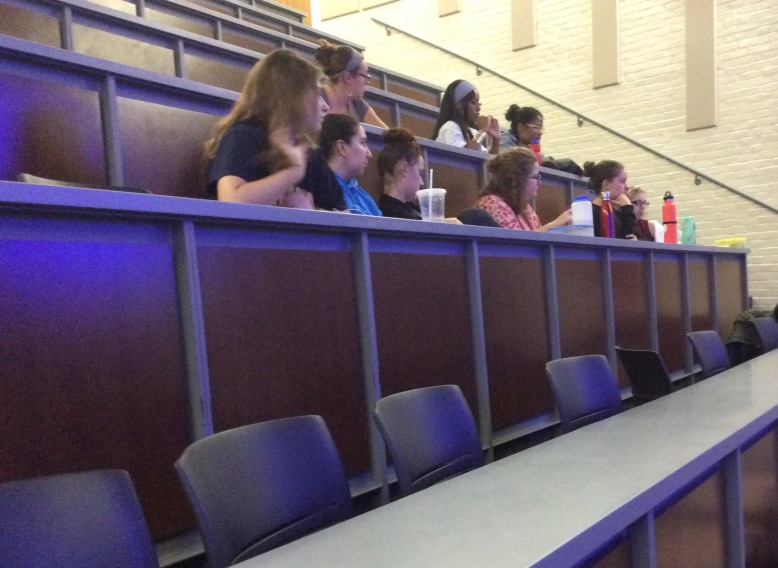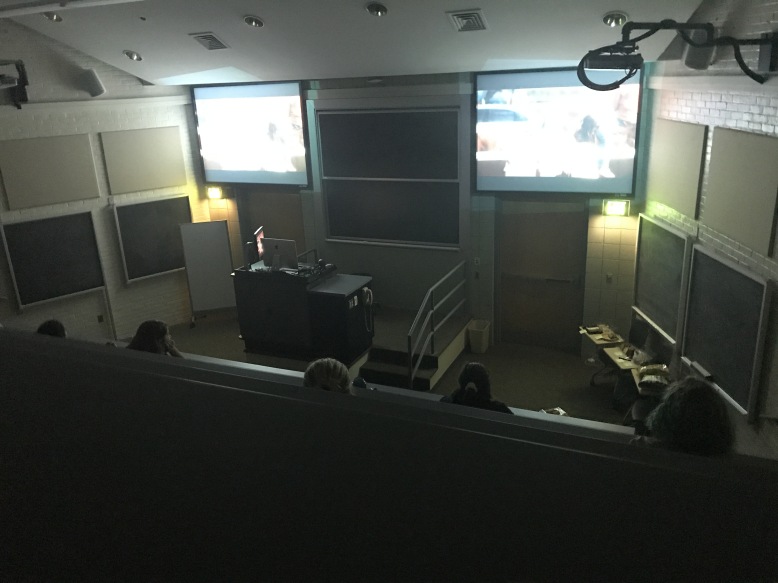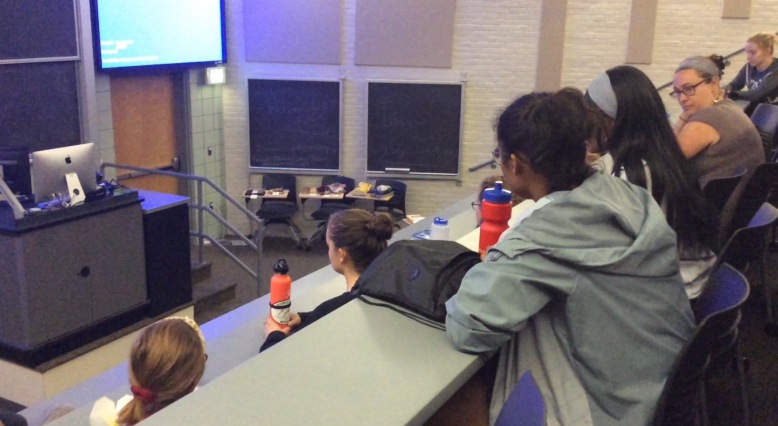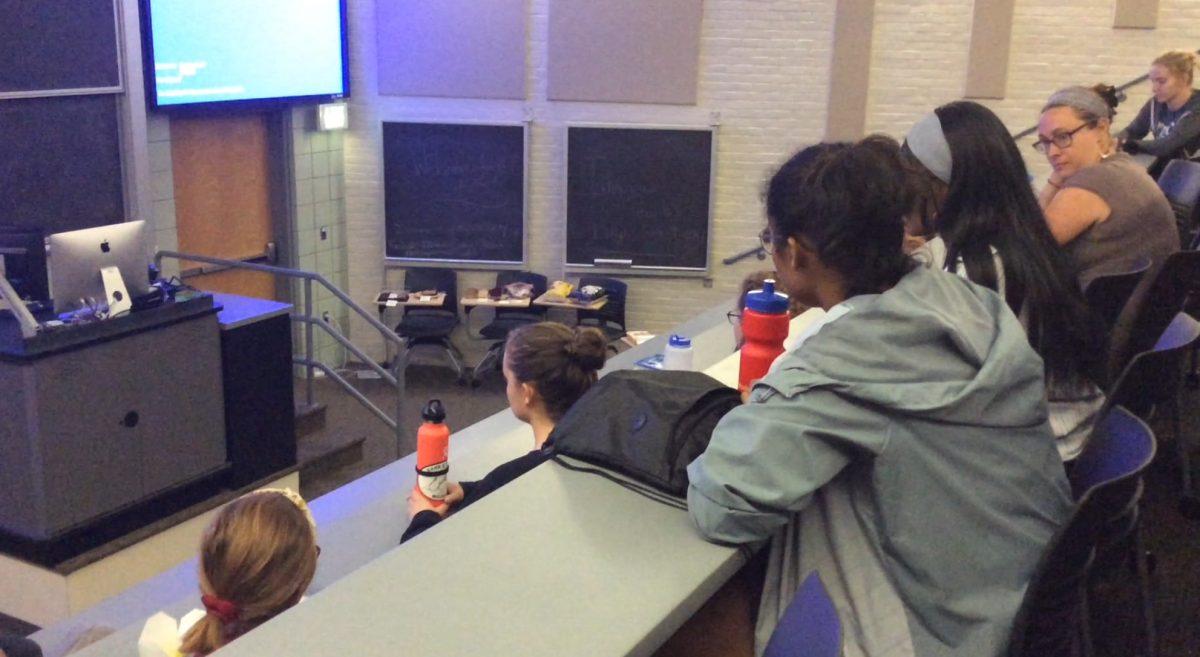If you need a refresher on the debate behind Christopher Columbus and the controversy surrounding the holiday, watch the video from Comedy Central’s Adam Ruins Everything show below.
On Sept. 7 the Ithaca City Common Council unanimously voted to recognize Indigenous Peoples’ Day in place of Columbus Day. The change came about due to a growing desire from the community to recognize native peoples’ history in North America.

Attendees listen to guest professor Iokepa Casumbal-Salazar.
Ithaca College Student Anthropological Society (ICSAS) president Kasey Gregory said the switch was a welcome change as it acknowledges how Native Americans have been glossed over by history in the past.
“It’s celebrating the fact that there were people here first and that those people deserve human rights that were taken away not just by colonials, but by the celebration of that day each year,” Gregory said.
Ithaca College hosted a celebration of its own hosted by ICSAS. The event included discussions and a lecture from new associate professor for the Center of the Study of Culture, Race, and Ethnicity, Iokepa Casumbal-Salazar.
Casumbal-Salazar spoke to the group of attendees about the importance of acknowledging Native Americans and how false depictions of them through the media has caused a massive negative impact.
After Casumbal-Salazar’s lecture attention shifted to the showing of “Reel Injun,” a 2009 Canadian documentary detailing how Native Americans have been portrayed in film over the years.
ICSAS executive board officer Kaitlyn Gough said she had seen the movie before, but viewing it again after hearing from Casumbal-Salazar provided a refreshing perspective.

“Reel Injun” was shown to attendees in the Williams lecture hall.
“… As he is a new professor here I hadn’t met him in person yet,” Gough said. “That added a perspective and made the second viewing of the film more significance.”
ICSAS secretary Paula Merkle said the film gave her another perspective on why Indigenous Peoples’ Day is needed.
“I had never seen the movie before, but had heard of it in previous anthropology classes,” Merkle said. “There were times where I found myself completely in shock at the misrepresentation of indigenous people in older films. It was eye-opening.”
At the end of the event Gough shared how vital these stories are for both anthropologists as well as the community at large.
“As white people, myself included, we weren’t the original people here and so much of that history is either erased or told incorrectly,” Gough said. “As an anthropologist telling the stories of people as they would tell it and understand it themselves is important to me. Having this story of people who are very much ignored is extremely important.”

Attendees continue their discussion before the film.







